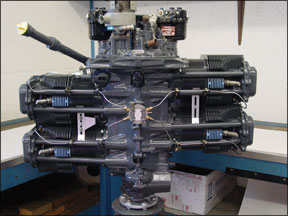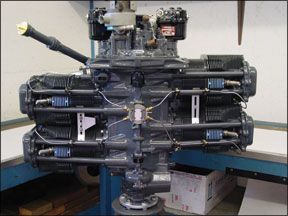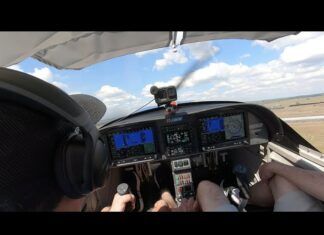Approaching the close of the last century, I owned a twin with a good friend. After flying it for some time, a costly AD plus the fact the engines were we’ll past TBO meant it was time to send them out for overhaul. We sent them to a shop I thought was a good one and paid in advance for a one-month turnaround. We got them back six months later. They were junk. The FAA got involved and I found out the FAA has a criminal division. The owner of the overhaul shop spent a year in the federal slam for forging logbook entries on our, and other, engines.

We sent the engines out, again, to Blueprint Engines (sadly, since defunct) and G & N Aircraft (still alive and we’ll in Griffith, Indiana). We were smart enough by then to only pay half up front. They came back on time and ran happily throughout our ownership of the airplane.
That episode taught me how fast an engine overhauler can go down the tubes. A friend had had an engine overhauled, without a problem, at that shop not a year before my debacle.
Over the last two years, I’ve had a ringside seat as another overhauler took full payment up front from owners and couldn’t seem to get their engines done, in one example, for more than half a year. In at least one case, the owner had his disassembled engine packed up and shipped to another shop. He never received a refund, even though a refund was one of many promises made to him by the shop.
A few years ago, I became part owner of a Cessna 210. Eighteen months ago, it became overhaul time. The airplane had broken we’ll over 1000 miles away. We paid Savvy Aircraft Maintenance Management’s fee (full disclosure; I’ve done legal work for the company) to manage the engine overhaul. After discussion with Savvy, we selected Powermaster Engines in Tulsa, OK. Under Savvy’s supervision, the engine was removed, shipped, overhauled to specs agreed to in consultation with Powermaster and Savvy, returned and reinstalled.
Everything went smoothly. About two months later, I flew to Oklahoma on business and went to Powermaster so they could do the first oil change and generally look things over. This was prior to me becoming editor of Aviation Consumer.
The oil change was accomplished, an issue with engine operation at idle was fixed and company owner Bill Cunningham flew with me to make sure everything was operating properly. There was no charge.
It may be a jaded perspective developed as an aviation attorney representing aircraft owners after things have gone badly wrong—nevertheless, I’ve come to feel that an engine overhaul is a crapshoot. Small businesses can go downhill fast if there is a blip in cash flow or if an essential employee departs.
I’ve formed the opinion that when it’s time to overhaul, there are two rules of thumb after you’ve done all the homework into shops you can possibly do: never, ever, pay more than half the cost up front, and either have the work done at a shop that is close enough to go visit so you can see for yourself how things are progressing, or hire someone to manage and/or oversee the process.
Trust your gut—if the shop stops returning phone calls, asks for more money before the engine is done or you can’t get hard information on what’s happening, take action to get the engine out of there before it gets worse.
—Rick Durden


